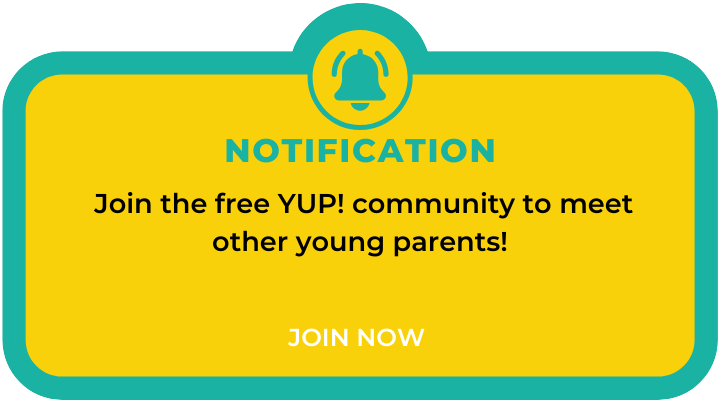Breastfeeding: Weaning

Breastfeeding is a journey that may last a few days or a few years, but no matter how long you breastfeed, the journey will come to an end eventually. Weaning refers to the period of time when a baby transitions from receiving breast milk to drinking formula or other liquids and eating solid foods. Weaning is a process and it can last days, weeks, or months depending on your and your baby’s needs. Often parents dread the weaning process, whether it be the worry about bonding with your child, the pain or discomfort of weaning, or the crying and tantrums that your child may experience.However, weaning does not have to be a scary or daunting experience. It is important to educate yourself on the process and give yourself and your baby grace along the way!
Hormones
While breastfeeding, some people experience a range of physical and emotional changes. Some people feel happier, some feel more sad and gloomy, and others experience a rollercoaster of emotions. For some people there are physical changes like weight gain or weight loss, absence of a period, hunger, exhaustion, among other things. Fluctuations in your mood or physical appearance both while breastfeeding and after weaning may occur due to hormone changes in the body. Your body produces many hormones and the levels that are present change depending on your and your baby’s needs. Specifically during weaning, the hormone Prolactin, which is responsible for feelings of calm, and the hormone Oxytocin, also known as the love hormone, which is responsible for deeper feelings of bonding, both decrease.
Effects on body
You may experience breast discomfort while you are weaning. This could be due to engorgement, or full breasts, clogged ducts, and even mastitis. It is important to know the warning signs of this as mastitis can lead to greater issues. Find more information on this and ways to alleviate the symptoms here. Naturally, your body is still creating milk until your hormones begin to shift and your brain realizes that it no longer needs to produce milk. This process may take days to weeks and during this time, you may experience fullness and even leaking. It is important to know that each time you empty your breasts, your body begins to produce more milk, so it is important not to fully empty your milk when you are weaning. One thing that can be very helpful is slowly weaning so that your body will begin to produce less and less milk over time until it eventually stops.
While you are weaning you may also experience changes to your libido or sex drive. If you experience a difference in your libido while breastfeeding, this may be due to the hormone changes in your body. As your prolactin decreases and your estrogen increases you may notice an improvement in vaginal dryness, however this is not the only factor contributing to libido. As you wean you may feel a range of emotions, for example, you may feel sad, tired, stressed, among other feelings that may impact your ability to “feel in the mood.” Just know that after you wean and adjust to your new norm, and as your hormones regulate, your libido should return to whatever is normal for you.
You may also experience irregular periods. Due to estrogen and progesterone imbalances, it is possible that you may experience an absence of your period or even heavier periods during and after breastfeeding. As your hormones begin to regulate with weaning, your periods will also begin to regulate, though if you have any concerns it is a good idea to check in with your healthcare provider.. In addition to changes in your period, it is important to be aware of potential changes in your fertility. While you are breastfeeding, your prolactin is higher, which is known to decrease ovulation. Once your prolactin goes down, periods return, and ovulation becomes more regular, you may see an increase in your fertility. It is important to discuss family planning with your partner and healthcare provider to prevent unintended pregnancies.
Additionally, you may notice changes in your weight. While you breastfeed you are burning on average 500-700 calories each day. This can cause you to feel more hungry and even eat more to keep up with the demand of breastfeeding. This hunger does not immediately change during weaning, however you are no longer burning as many calories and as a result you may experience gradual weight gain.
Finally, it is possible that you may experience hair and skin changes while weaning. As your estrogen rises, you may experience changes in your hair and/or skin. These changes may include hair loss, skin dryness, breakouts, and stretch marks.
Emotions
Breastfeeding can be an emotional adjustment as you are ending a journey and beginning another. While you are weaning you may feel a range of different emotions from happiness and relief to sadness and frustration. It is also normal to have feelings around bonding with your baby especially since breastfeeding allows you to bond and create a sense of closeness. For some, weaning brings on a mixture of grief and relief: grief because of the transition of your baby from an infant to a toddler, and relief from all the work and commitment that comes with breastfeeding. For others there may be guilt or disappointment about the timing of weaning. In some cases, weaning may begin before one is ready perhaps because their milk production is low or maybe because of other physical or mental health reasons, causing feelings of sadness and disappointment. In other cases one may be weaning an older child and feel guilt if the child is upset or not ready. In any case, your feelings are valid and acknowledging those feelings can help you to process and move through them.
Some people experience symptoms of anxiety and depression during the weaning process. This can be due to the changes in your hormone levels, but it may also be due to the stress of weaning itself. While you are weaning, your baby may experience changes in their sleep, they may cry more, and they may be in need of more cuddles and attention. It is important to keep in mind that this process can take a toll on you mentally and physically, causing irritability and mood swings. Seek out help from your healthcare provider or therapist if you are experiencing shifts in your mood or emotions. Having a support system during this time is very important.
Signs baby is ready to wean
- Your baby is fussy or becoming less interested in breastfeeding.
- Your baby is breastfeeding for less time or less often.
- Your baby is more distracted during breastfeeding. This may also include playing with your breast/nipple and even biting.
- Your baby is using the breast to pacify or comfort themselves, but not getting much milk.
Signs that you may be ready to wean
- You notice changes in your mental health while breastfeeding
- Your milk production slows down or stops
- You are simply ready and feel that weaning is best for you and your baby!
Just like breastfeeding is a journey, so is weaning. There is no right or wrong way to wean and there is not one way that people experience it. Your experience may differ from a family member or peer’s experience and that is okay. Take cues from your body and your baby to determine the right time to wean. Also, know that you are not alone! Lean on your support system and the YUP! community for support along the way.
Resources
- La Leche League: https://llli.org/breastfeeding-info/weaning-how-to/
- Office on Women’s Health: https://www.womenshealth.gov/breastfeeding/breastfeeding-home-work-and-public/weaning-your-baby
- Healthline: https://www.healthline.com/nutrition/weaning.
